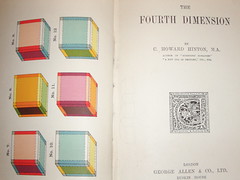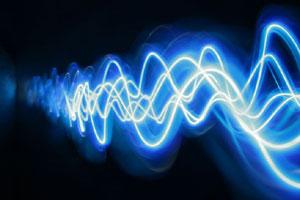The aim of the
Alternate Minds Project is to explore science fictional permutations of the concept of mind (and related concepts such as intelligence, perception, selfhood). By entertaining speculative scenarios wherein the target concepts are bent almost beyond recognition, we gain insights into the nature of mind and catch glimpses of new possibilities. Initial investigations will be clustered around seven key themes.
1. Virtual Minds are typically thought of as embedded in simulated environments and the minds themselves may be artificial. One intriguing question is whether there can be naturally occurring instances of virtual minds, or whether there must always be an artificial component that defines their virtuality.
2. Infinite Minds are minds infinite in one or more capacities, such as infinite intelligence, infinite perceptual acuity, or infinite will power. Of our various mental capacities that come in degrees, for which, if any, does it make sense to imagine versions that are infinite? Can we coherently conceive of, for example, a being with infinite will-power?
3. Group Minds are minds with proper parts that are themselves minds. Are any of our minds already proper parts of group minds? If there were group minds in our midst, how would we know?
4. Time-traveling Minds either literally move through time in non-standard ways or employ high degrees of computational power to simulate target events. What cognitive/computational advantages are there to intelligent systems that harness literal time-travel? From a computational point of view, what are the relative resource costs of literal versus simulated time-travel?
5. Hyper-spatial Minds: One of the most fun things to think about in contemplating minds inhabiting spaces of dimension n>3 are questions concerning the perceptual phenomenology of seeing (feeling, etc.) hyperspatial objects. What is it like to have four- (or five- or six-) dimensional eyes? In addition to these questions concerning hyperspatial sensory input, are interesting questions of output. What is it like to move a body though a hyperspatial manifold? Last, but not least, are questions concerning the computational processes mediating between inputs and outputs. What advantages and obstacles are presented to circuit-engineering a cognitive architecture where there are extra dimensions in which to wire things up.
6. Quantum Minds: The dominant approaches in contemporary cognitive science deal with minds within a classical physical framework. But what would consciousness and cognition be like if non-classical quantum principles played major roles in implementation. What would it be like to be an AI implemented on a quantum computer? What would it be like to be small enough or perceptually sensitive enough to directly perceive events occurring on quantum scales?
7. Anti-Minds are non-sapient, non-sentient systems with the capability to detect and destroy minds. They are either the ultimate evil or the ultimate protection against the dangerous effects of technologically advanced civilizations. One of the core questions raised in contemplating anti-minds is whether there can exist non-intelligent mechanisms for the detection of intelligence. Such mechanisms could be crucial in the search for extra-terrestrial intelligence.










 Sacks and Siegel in Nature
Sacks and Siegel in Nature